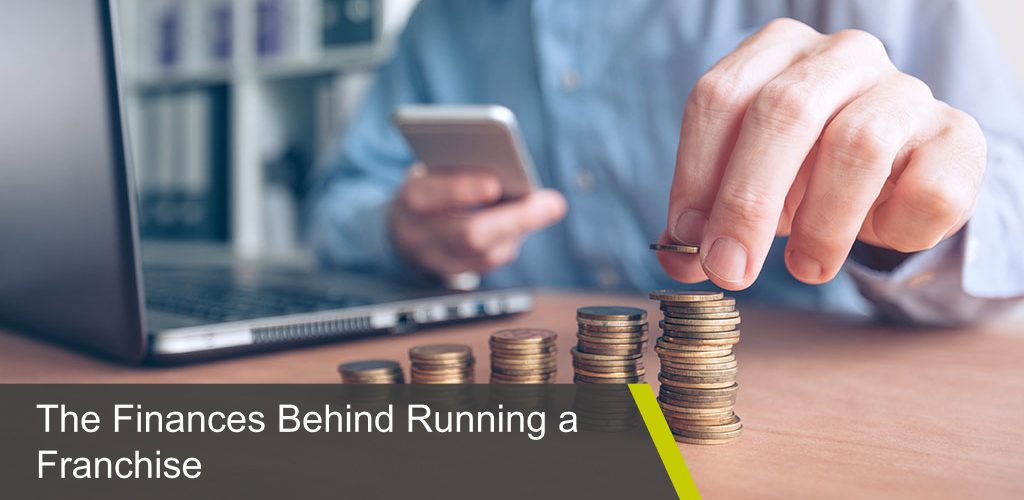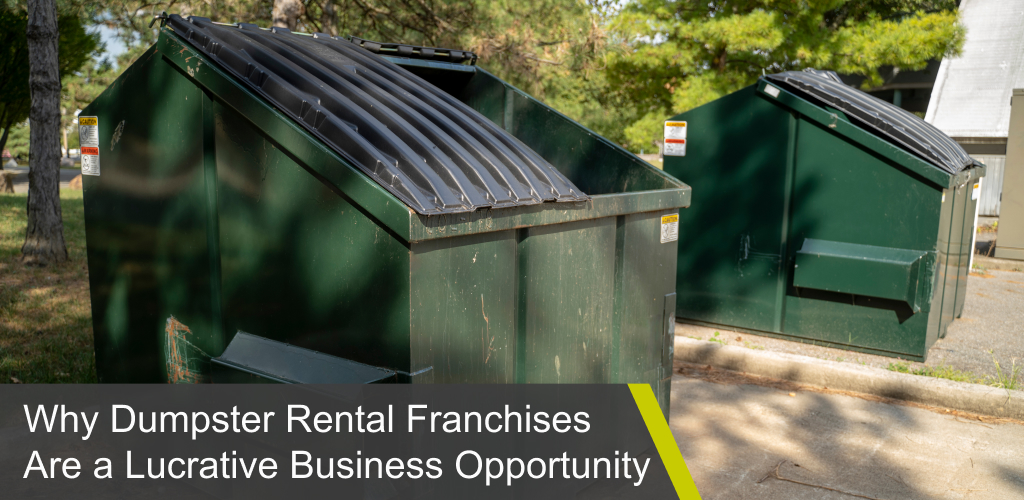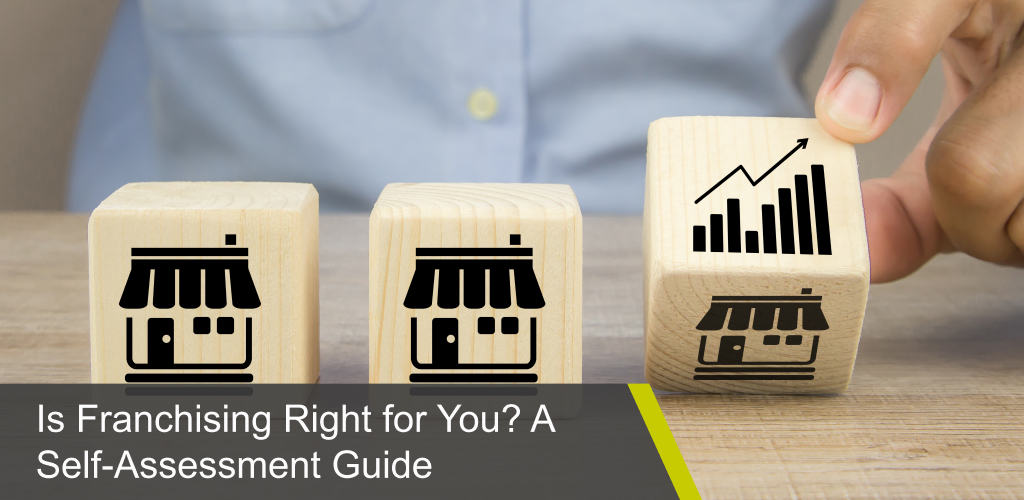The Finances Behind Running a Franchise

How Much It Really Costs To Be A Franchisee
Are you interested in starting your own business but are concerned about the financial commitment it may require? You’re not alone. One of the biggest hindrances to becoming an entrepreneur is the start-up costs and ongoing financial burden it requires. For this reason, many prospective business owners consider buying a franchise as it requires significantly lower startup costs and is more profitable and lower risk from a financial perspective.
However, it’s important to understand that running a franchise is not a “cheap” or “easy” option. While starting a franchise is typically less expensive than starting a business from the ground up, running a franchise requires a significant financial commitment that all franchisees should be aware of before investing in a franchisor.
To help you understand the full scope of what is required of a franchisee, this article will provide an overview of the financial aspect of running a franchise.
What Is a Franchise?
A franchise is an established brand with multiple locations that third parties known as franchisees or franchise operators can buy into. The franchisee will own their own business but must abide by the guidelines, branding, rules, and systems implemented by the franchisor. In exchange for using the franchisor’s systems and branding, the franchisee must pay a franchise fee along with royalty fees to the franchisor.
What Are the Benefits of Becoming a Franchise Operator?
Starting a business from the ground up can be incredibly difficult and financially taxing. Franchising, on the other hand, is often more attainable and offers numerous benefits, such as:
- Lower start-up costs
- Less risk
- Lower failure rate
- Support and guidance from the franchisor
- Immediate brand recognition and customer-base
- Training support from the franchisor
- Easier access to financing
- Advertising and marketing support
How Much Does it Cost to Buy a Franchise?
The cost of running a franchise widely varies, however, typically, franchisees can expect to make an initial upfront investment of $100,000 to $300,000.
This number is dependent on the following factors:
- The franchise you are buying into
- Franchise fees
- Royalty fees
- The franchise agreement
- Access to financing
- How much capital you start with
Below we will dive deeper into the various costs involved with running a franchise.
What Are the Costs Involved in Running a Franchise?
As previously mentioned, there are many different factors that contribute to the overall cost of buying and operating a franchise.
The main costs include:
Franchise Fees
Franchise fees are an upfront cost paid to the franchisor for the use of its branding and systems, along with ongoing support and training.
Franchise fees vary from franchisor to franchisor, however, the average range is between $10,000 to $100,000.
This fee will cover only the length of the term put in place by the franchisor. Some franchisors will set a term of 20 years while others will require as short as a five-year term.
Marketing and Advertising
The cost of advertising and marketing your specific franchise falls on the franchisee. These costs can vary widely depending on the type of marketing you do.
Accounting Fees
Along with hiring a lawyer to help you review your franchise agreement, you should also seek out the services of an accountant to help you go over the numbers, including anticipated profits, monthly costs, startup costs, and more.
Operating Costs
For any business, operating costs are a mandatory part of being a business owner. The same goes for a franchisee.
When running a franchise, the types of operating costs you can typically expect include:
- Supplies
- Equipment maintenance
- Employee salaries
- Commercial lease
- Marketing costs
- Utilities
Startup Costs
Starting a business is expensive and requires a significant financial investment to help cover start-up costs. As previously mentioned, most franchisees can expect to spend between $100,000 and $300,000 on start-up costs.
Building and Construction Costs
Whether you own your building or lease a commercial space, you will need to pay for building or renovation costs.
Supplies and Equipment
As a franchisee, you will be responsible for purchasing or renting the supplies and equipment needed for running your business. This can include:
- Product inventory
- Point of sale devices (POS)
- Office supplies
- Cleaning products
- Furniture
- Computers
- And more
Lawyer Fees
Whether you are an experienced franchisee or this is your first time, hiring an experienced franchise lawyer to review your franchise agreement and oversee the process of buying into a franchise is an added cost that is absolutely necessary. The average fee for a franchise lawyer is $300 to $450 per hour, so make sure you budget for this.
Loan Payments
If you obtain a loan in order to finance the purchase of your franchise, you must make regular loan payments in order to avoid defaulting on your loan.
Royalty Fees
On top of franchise fees, franchisees must pay royalty fees to the franchisor. Unlike franchise fees which are paid out once at the beginning of each franchise term, royalty fees are ongoing and are paid weekly, monthly, or quarterly and are determined by your gross sales.
The royalty fee is typically a percentage of your gross sales, but can also be a fixed dollar amount. The percentage can range between 4% and 12% depending on the franchisor.
Partner With Gorilla Bins
Ready to start your franchising journey and find a franchisor to partner with? Consider partnering with Gorilla Bins.
Gorilla Bins is the top waste management business in Ontario with several locations across the Greater Toronto Area. Even if you have no experience in waste management, Gorilla Bins offers lots of support to ensure your franchise is fully set up for success. We’ll teach you everything you need to know about our franchise and offer plenty of training and support to help you succeed with your franchise.
Contact us today to learn more about franchising with Gorilla Bins.
How Much It Really Costs To Be A Franchisee
Are you interested in starting your own business but are concerned about the financial commitment it may require? You’re not alone. One of the biggest hindrances to becoming an entrepreneur is the start-up costs and ongoing financial burden it requires. For this reason, many prospective business owners consider buying a franchise as it requires significantly lower startup costs and is more profitable and lower risk from a financial perspective.
However, it’s important to understand that running a franchise is not a “cheap” or “easy” option. While starting a franchise is typically less expensive than starting a business from the ground up, running a franchise requires a significant financial commitment that all franchisees should be aware of before investing in a franchisor.
To help you understand the full scope of what is required of a franchisee, this article will provide an overview of the financial aspect of running a franchise.
What Is a Franchise?
A franchise is an established brand with multiple locations that third parties known as franchisees or franchise operators can buy into. The franchisee will own their own business but must abide by the guidelines, branding, rules, and systems implemented by the franchisor. In exchange for using the franchisor’s systems and branding, the franchisee must pay a franchise fee along with royalty fees to the franchisor.
What Are the Benefits of Becoming a Franchise Operator?
Starting a business from the ground up can be incredibly difficult and financially taxing. Franchising, on the other hand, is often more attainable and offers numerous benefits, such as:
- Lower start-up costs
- Less risk
- Lower failure rate
- Support and guidance from the franchisor
- Immediate brand recognition and customer-base
- Training support from the franchisor
- Easier access to financing
- Advertising and marketing support
How Much Does it Cost to Buy a Franchise?
The cost of running a franchise widely varies, however, typically, franchisees can expect to make an initial upfront investment of $100,000 to $300,000.
This number is dependent on the following factors:
- The franchise you are buying into
- Franchise fees
- Royalty fees
- The franchise agreement
- Access to financing
- How much capital you start with
Below we will dive deeper into the various costs involved with running a franchise.
What Are the Costs Involved in Running a Franchise?
As previously mentioned, there are many different factors that contribute to the overall cost of buying and operating a franchise.
The main costs include:
Franchise Fees
Franchise fees are an upfront cost paid to the franchisor for the use of its branding and systems, along with ongoing support and training.
Franchise fees vary from franchisor to franchisor, however, the average range is between $10,000 to $100,000.
This fee will cover only the length of the term put in place by the franchisor. Some franchisors will set a term of 20 years while others will require as short as a five-year term.
Marketing and Advertising
The cost of advertising and marketing your specific franchise falls on the franchisee. These costs can vary widely depending on the type of marketing you do.
Accounting Fees
Along with hiring a lawyer to help you review your franchise agreement, you should also seek out the services of an accountant to help you go over the numbers, including anticipated profits, monthly costs, startup costs, and more.
Operating Costs
For any business, operating costs are a mandatory part of being a business owner. The same goes for a franchisee.
When running a franchise, the types of operating costs you can typically expect include:
- Supplies
- Equipment maintenance
- Employee salaries
- Commercial lease
- Marketing costs
- Utilities
Startup Costs
Starting a business is expensive and requires a significant financial investment to help cover start-up costs. As previously mentioned, most franchisees can expect to spend between $100,000 and $300,000 on start-up costs.
Building and Construction Costs
Whether you own your building or lease a commercial space, you will need to pay for building or renovation costs.
Supplies and Equipment
As a franchisee, you will be responsible for purchasing or renting the supplies and equipment needed for running your business. This can include:
- Product inventory
- Point of sale devices (POS)
- Office supplies
- Cleaning products
- Furniture
- Computers
- And more
Lawyer Fees
Whether you are an experienced franchisee or this is your first time, hiring an experienced franchise lawyer to review your franchise agreement and oversee the process of buying into a franchise is an added cost that is absolutely necessary. The average fee for a franchise lawyer is $300 to $450 per hour, so make sure you budget for this.
Loan Payments
If you obtain a loan in order to finance the purchase of your franchise, you must make regular loan payments in order to avoid defaulting on your loan.
Royalty Fees
On top of franchise fees, franchisees must pay royalty fees to the franchisor. Unlike franchise fees which are paid out once at the beginning of each franchise term, royalty fees are ongoing and are paid weekly, monthly, or quarterly and are determined by your gross sales.
The royalty fee is typically a percentage of your gross sales, but can also be a fixed dollar amount. The percentage can range between 4% and 12% depending on the franchisor.
Partner With Gorilla Bins
Ready to start your franchising journey and find a franchisor to partner with? Consider partnering with Gorilla Bins.
Gorilla Bins is the top waste management business in Ontario with several locations across the Greater Toronto Area. Even if you have no experience in waste management, Gorilla Bins offers lots of support to ensure your franchise is fully set up for success. We’ll teach you everything you need to know about our franchise and offer plenty of training and support to help you succeed with your franchise.
Contact us today to learn more about franchising with Gorilla Bins.













